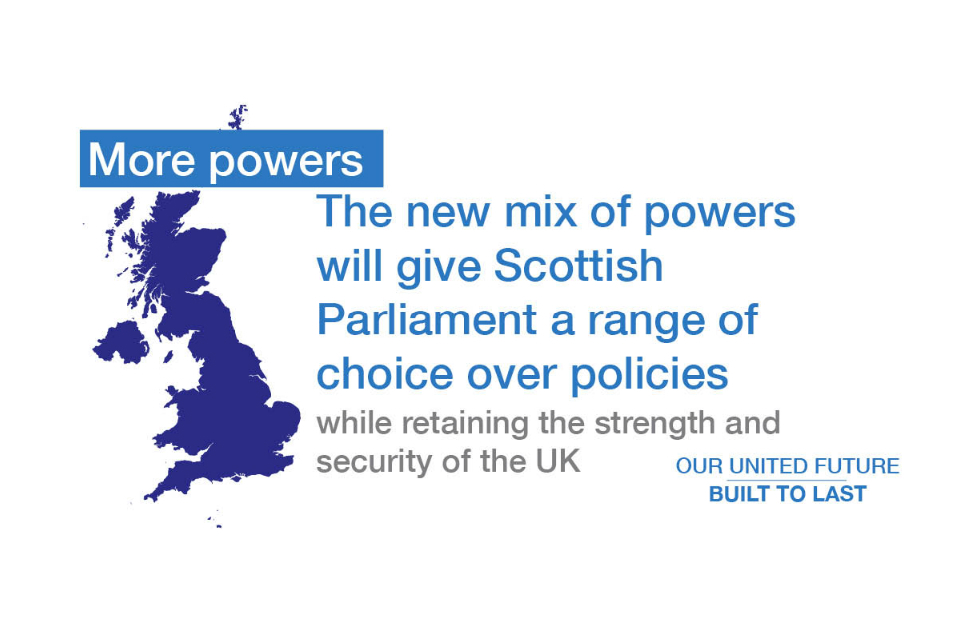Welfare changes - at a glance
Published 22 January 2015
The draft clauses, which will pave the way for the recommendations of the Smith Agreement to be turned into law, will see a significant amount of responsibility for the design and implementation of the welfare system in Scotland devolved to the Scottish Parliament.
All aspects of the state pension will remain reserved, but powers for a wide range of other benefits will be transferred to Holyrood.

The new mix of powers will give Scottish Parliament a range of choice over policies
0.1 Supporting people back into work
-
The new powers outlined in the draft clauses published on 22 January 2015 mean that in future, the Scottish Government will be able to set up its own employment programmes to help the long-term unemployed and disabled people into work
-
A significant amount of Department for Work and Pensions support to job seekers delivered by centrally-contracted providers – such as the Work Programme - is being devolved. Help for long-term unemployed and disabled people currently makes up 95% of DWP’s budget for centrally contracted employment support delivered through providers
0.2 Discretionary welfare payments
-
The Scottish Parliament will have the power to legislate for discretionary payments to people in any area of welfare
-
This means Scottish Government Ministers will be able to set up a system to identify where there is a risk to the well-being of an individual and make a payment to that person to address this short-term need
0.3 Benefits for disabled people and carers
-
Control over benefits affecting some of the most vulnerable members of society will be devolved to the Scottish Parliament
-
This includes things like Disability Living Allowance, Carer’s Allowance, Attendance Allowance, Personal Independence Payment and industrial injuries benefits
-
This means the Scottish Parliament will have wide-ranging powers to make provision for Scottish versions of these benefits – with the ability to change the rules, or even replace these benefits with new ones or other payments and services
0.4 Regulated Social Fund
- The Scottish Parliament will have the power to make its own provision for the subject matter of the Regulated Social Fund – this means Winter Fuel Payments, Cold Weather Payments, Sure Start Maternity Grants and Funeral Payments. It will also be able to create new benefits in this area if it wishes
0.5 Universal Credit
-
Universal Credit remains reserved, but the Scottish Government will have new powers to determine how claimants are paid and how much some claimants get for housing support
-
Scottish Government Ministers will be able to decide how often to pay Universal Credit to claimants, and will be able decide when to pay housing costs directly to landlords
-
Scottish Government Ministers will also be able to vary the housing costs covered by Universal Credit for people in rented accommodation
0.6 Discretionary Housing Payments
- Discretionary Housing Payments will be devolved in full. This will give the Scottish Parliament the power to support Housing Benefit and certain Universal Credit claimants who need help with their housing costs

Scotland will have major new powers over income tax, VAT and air passenger duty and some areas of welfare
